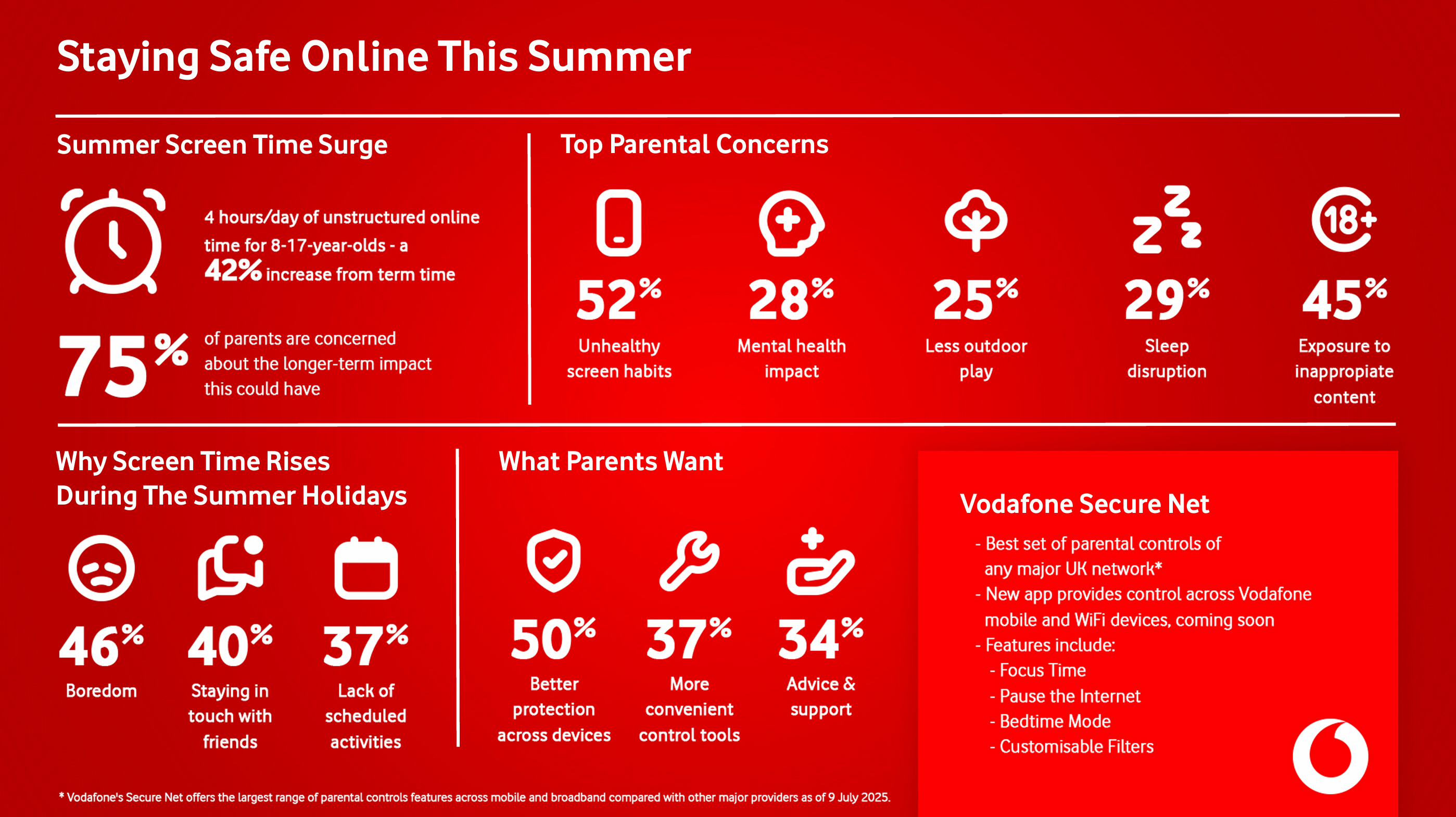UK parents get a powerful new tool to manage kids’ screen time while the rest of the world waits

- Parental concerns over screen time grow as kids spend four hours online during the summer holidays
- The Secure Net update only helps UK families, despite Vodafone operating in over 20 countries
- Unstructured screen time rises during school breaks, sparking fresh demand for digital boundaries at home
As the summer holidays bring more freedom and fewer routines, children are spending much more time online, but new research has warned on the risks this could bring.
A report from VodafoneThree revealed screen time among 8 to 17-year-olds has risen to as much as four hours of unstructured use per day, a 42% increase compared to during the school term.
While some of this time is spent staying in touch with friends or occupying long journeys, nearly two-thirds (65%) of UK parents have expressed concern over the digital habits of their kids during school breaks and the overall impact on them.
Digital safeguards for kids arrive, but not for everyone
In response, VodafoneThree plans to release a major update to its Secure Net app offering enhanced parental control features designed to help families manage device use more easily.
“Unstructured screen time tends to naturally rise during the summer holidays, so we’ve teamed up with Digital Awareness UK to offer practical, parent-friendly guidance,” said Nicki Lyons, Chief Corporate Affairs and Sustainability Officer at VodafoneThree.
“Combined with our Secure Net service, which offers the most comprehensive parental controls of any major UK network, families can feel more confident navigating the digital world together and enjoy a safer, more balanced summer break.”
The Secure Net app, which currently offers basic filtering and protection, will soon allow UK parents to manage both mobile and home broadband connections through a single interface.
Its goal is to create a simpler way for families to limit access to inappropriate content, reduce distractions, and encourage healthier routines.
The app features include “Pause the Internet,” “Bedtime Mode,” content filters, and a “Focus Time” setting that blocks certain apps during study periods.
While VodafoneThree describes the tool as offering the most complete set of parental controls among major UK networks, it is not a substitute for other forms of digital protection.
The app does not include antivirus or ransomware protection, and its main function is to control access rather than detect threats.
Families hoping to improve overall digital safety may still need separate software to protect against malware or more sophisticated attacks.
However, despite its global reach, the company is making the updated app available only to its UK customers at no additional cost.
This raises questions, particularly given the universal nature of the issues involved.
Parents across parent company Vodafone’s many markets face similar concerns about screen time, harmful content, and lack of oversight, but they are left out for now.
“We know that the summer holidays can be a challenging time. This can’t always be avoided, but without structure, it can lead to greater exposure to online harms, mental health effects, and unhealthy tech habits that are difficult to undo,” said Emma Robertson, CEO of Digital Awareness UK.





